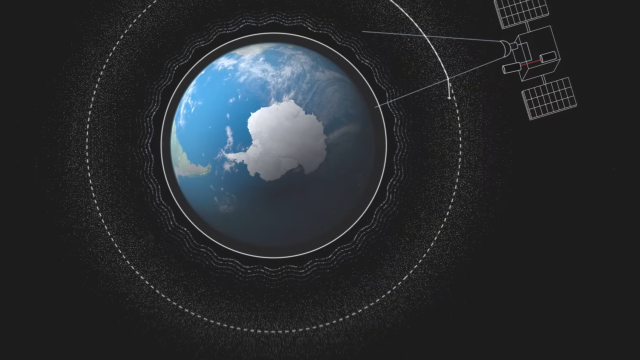Humans are, let’s say, not good at picking up after ourselves. We leave trash behind essentially everywhere we go, including space. Back in 1978 NASA scientist Donald J. Kessler proposed a scenario in which low Earth orbit space pollution becomes so prevalent that collisions between objects could create a cascading spiral of more space debris causing more collisions until there is just a giant cloud of junk separating us from the vastness of the unknown. If we don’t do something about our space junk problem now, there’s a chance that any space activities could be difficult, if not impossible, for several generations. One prevalent solution to this issues is frickin’ space lasers.
A space laser, whether a ground-based system shooting up, or an orbit-based satellite system shooting down, applies just enough energy to a moving object that will either kick it further out of orbit into space, or zap it closer to the atmosphere, accelerating its collision course with a density-induced friction decomposition.
Most space trash is sitting in orbit around the planet right now, and every second its gravitational orbit degrades slightly until it falls into the atmosphere and burns up. But there’s so much shit out there, including a bunch of tiny things that we can’t accurately track, just waiting to hit a satellite or rocket and cause untold damage. Perhaps the bigger problem is that billionaire man-children are waging their dick-measuring contest in space and keep sending shit up there faster than it can be burned up.
We, as a global community, need to do something about this issue, or could be more or less locked out of space for several decades. Everything is a little bit terrible right now, but you can rest easy at night knowing that the world’s top scientists are developing space lasers to shoot down garbage.
